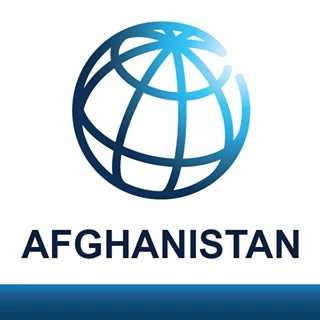Today, nearly 85 percent of adults in Afghanistan are unbanked and do not own an account in any financial institution . This is higher than the average for low-income countries. Actually, financial exclusion in Afghanistan is one of the highest around the world.
The limited number of access points, high cost of financial services, and inadequate financial services that do not meet the needs of low-income households explain this low rate of financial inclusion in Afghanistan. Moreover, obstacles posed by security concerns, religious and cultural beliefs, lack of trust in the financial sector, and low rates of financial literacy are also considered as major factors behind it.
All these obstacles are even more pronounced for women. As a result, only 7 percent of Afghan women own an account, compared with 23 percent for Afghan men.
To address the root causes of financial exclusion, the central bank Da Afghanistan Bank (DAB) launched the first National Financial Inclusion Strategy (NFIS) for Afghanistan (2020–2024) in September 2019. The effective implementation of this nation-wide financial strategy will help promote greater financial inclusion and contribute to the nation’s economic growth and overall welfare.
Effective implementation of this nation-wide financial strategy will help promote greater financial inclusion and contribute to the nation’s economic growth and overall welfare
The NFIS was the result of several initiatives taken by DAB, with technical assistance from the World Bank Afghanistan. First, the Financial Inclusion Department (FID) was established within DAB in June 2016. The main functions of the FID are to a) conduct diagnostic studies with the intention of highlighting the main barriers and obstacles to financial inclusion; b) organize and coordinate meetings to steer the financial inclusion agenda; c) attract stakeholders' buy-in; and d) design, formulate, and implement a national strategy for financial inclusion.
Second, DAB formed a Financial Inclusion Taskforce to discuss updates, issues, and work plans on financial inclusion and coordinate requisite steps to move the financial inclusion agenda forward. DAB is leading the taskforce with the Ministry of Finance, the Afghanistan Banks Association (ABA), and the Microfinance Investment Support Facility for Afghanistan (MISFA) as member institutions.
Furthermore, DAB established a National Committee for Financial Inclusion, which has more than 20 stakeholders from government agencies, financial services providers including mobile money providers, non-governmental organizations, and international organizations. The main purpose of creating this committee was to hold consultations on the financial inclusion strategy and obtain stakeholders' policy commitments.
The overall goal of the NFIS is to reduce financial exclusion in Afghanistan by close to 15 percent and improve the overall financial access of all Afghan citizens within the next four years.
The resulting NFIS has an overarching vision to achieve an inclusive, sound, and responsive financial system in which all men and women, and micro, small, and medium enterprises (MSMEs) have effective access to, and regularly use, a range of quality and affordable financial services that meet their needs and contribute to their economic well-being.
The core objectives specified in the NFIS are to:
- Expand and diversify access points and enhance both men’s and women’s access to formal financial services;
- Enhance MSMEs’ access to finance provided by formal financial institutions;
- Improve agriculture sector’s access to finance;
- Establish a robust financial consumer empowerment and protection framework; and
- Promote access to digital financial services.
Within the next five years, it is expected that, with the effective implementation of NFIS, the percentage of Afghan adults owning bank accounts will double. Special efforts will be made to increase account ownership among Afghan women to reach our target. By the year 2024, 27 percent of Afghans adults will own an account at a financial institution, including mobile money institutions.
Within the next five years, it is expected that the percentage of Afghan adults owning bank accounts will double
Our target is ambitious. Efforts have been made to identify a coordination structure that will bring together various stakeholders, help DAB implement the NFIS, and monitor NFIS implementation through an effective monitoring and evaluation framework. The coordination structure will include an NFIS Coordination Council, Financial Inclusion Secretariat, Technical Committee, and Working Groups. The NFIS Coordination Council will be chaired by the Governor of DAB, and will include high-level authorities from MISFA, ABA, and government agencies, including the Ministry of Finance, as members. It will be responsible for setting the overall policy and strategic direction of NFIS implementation. The Working Groups comprising relevant private and public stakeholders and development partners will be involved in implementing the NFIS.
DAB is fully committed to a successful implementation and is already taking steps in this direction, including through the implementation of the World Bank-financed Payments Automation and Integration of Salaries in Afghanistan (PAISA) project and the preparation of a series of reforms and engagement for the development of the financial sector, with the ultimate goal of improved well-being for the Afghan population.


Join the Conversation